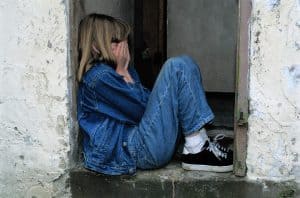Depression in Children
While it’s normal for children to get the blues, childhood depression is different. If a child’s sadness interferes with normal family life, schoolwork, interests, or social activities and becomes persistent, it may be an indication of a depressive illness. Thankfully, though depression is a serious illness, it is also very treatable.
How to Recognize Anxiety and Depression in Children
Signs of depression in children can vary. Many parents assume that a child’s sadness is just normal psychological and emotional change that occurs with growth, which means that it often goes undiagnosed and untreated. While some children act out or become angry when depressed, the main symptoms of depression in children revolve around mood changes, feelings of hopelessness, and sadness.
Depression Signs in Children Include
- Thoughts of suicide and death
- Impaired concentration and thinking
- Feelings of guilt and worthlessness
- Lowered ability to function during hobbies and interests, or activities and events at home or during extracurricular activities, in school, or with friends
- Physical complaints (like headaches or stomachaches) which don’t respond to treatment
- Low energy or fatigue
- Difficulty concentrating
- Crying or vocal outbursts
- Changes in sleep patterns (excessive sleep or sleeplessness)
- Increase or decrease in appetite
- Increased sensitivity to rejection
- Social withdrawal
- Continuous feelings of hopelessness and sadness
- Anger and irritability
Not all ADHD and depression in children is this obvious. Symptoms in most children will display in different settings at different times. Most children with significant depression will suffer a noticeable change in appearance, poor academic performance, and loss of interest in school, or a change in social activities, though some will continue to function well in structured environments. Children older than 12 may even begin to use alcohol and drugs.
Though rare, some young children under 12 will attempt suicide impulsively when angry or upset. Boys are more likely to succeed in killing themselves, while girls are more likely to try. Depression in young children, as well as issues with sexual or physical abuse, alcohol abuse, or a history of family violence, puts kids at a higher risk of suicidal thoughts.
What Are the Causes of Depression of Children?
Just like in adults, childhood depression may be caused by a combination of factors relating to biochemical disturbance, genetic vulnerability, environment, family history, life events, and physical health. Depression does not pass on its own. It requires proper treatment to dissipate.

Treatment Options for Depression in Young Children
Similar to adults, treatment options for depressed children include psychotherapy and medication. However, the child’s environment and role in their family is different than with grownups. Most doctors will start with psychotherapy and move on to antidepressants only after finding no significant improvements. Using counseling and medication together has been proven to be very effective in treating ADHD and depression in children.
If your child is having depressive symptoms, Seeking Therapy Counseling Services, serving Chula Vista, California, and greater San Diego County can help. Call us at 619-646-8283 today or contact us online to ask questions and set up your child’s first appointment.